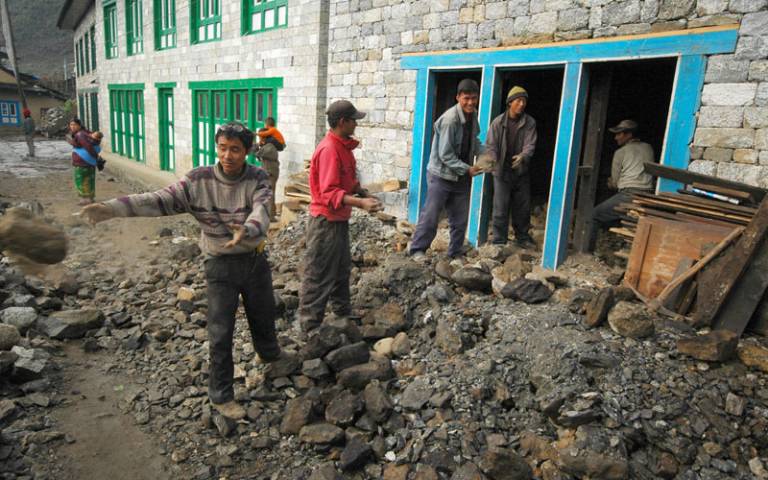Invisible threads
Informal networks in disaster preparedness and response

14 February 2020
In the aftermath of a natural disaster, such as a flood or earthquake, relief is provided by formal channels such as governments or aid agencies. However, across the world a fundamental role is also played by informal networks of non-institutional channels, such as family, neighbours, churches or schools.
These ‘informal governance systems’ (IGS) provide a flow of information, knowledge and goods on the ground, and yet the exact nature and extent of their role in disaster relief has not yet been well documented or explored. Better understanding on IGS is therefore critical in order to plan effective actions for disaster risk reduction.
In this context, the City Leadership Laboratory within UCL’s Department of Science, Technology and Public Policy (STEaPP), in collaboration with international and national partners, is producing evidence on the role of IGS in disaster preparedness, response and recovery in hazard-prone cities.
Shaking up disaster relief
The project is using data from three pilot studies in Nepal, Japan and the Philippines to explore the role of informal networks in disasters affecting different geographical and socio-political contexts.
The aim is to encourage a dialogue and knowledge exchange between different actors involved in disaster relief – from international bodies and national governments to grassroots organisations – about how informal processes and practices can be acknowledged and effectively incorporated into disaster-relief strategies, plans or community-led actions.
This research is being conducted in a close dialogue with the World Bank’s Global Facility for Disaster Risk Reduction, the International Committee of the Red Cross and the Red Cross national delegations.
This line of work has also been selected as a good example of science production for disaster relief and will be presented to the United Nations Office for Disaster Risk Reduction.
- Find out more at ucl.ac.uk/steapp/research/projects/informal-governance-systems
 Close
Close

